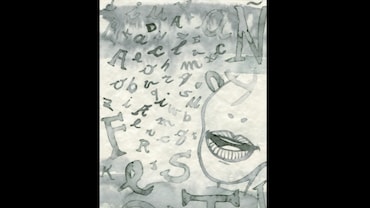Do Rude Comments About a High-School Student Qualify as Hate Speech?
The bottom line in North Carolina? Mean and insulting comments, like those posted by Bishop, are perfectly legal.

In December 2011, Dillion Price's mother found him crying in his bedroom. For three months, students in his class at Southern Alamance High School in North Carolina, USA, had been posting nasty comments and pictures of him on Facebook. His mum took the posts, some describing Price performing sexual acts in very crude language, to the county sheriff's office.
Soon after, a county detective, -David Sykes, began to investigate. He created a fake Facebook profile to keep tabs on Price's account and monitored it for two months. When he came across posts he considered to be cyberbullying, he took screenshots of them and added the users' names to a list, which he took with him to the high school on the morning of 7 February 2012.
It was on that day that Robert Bishop was pulled out of class to meet with Sykes in the assistant principal's office. The sophomore was shown the screenshots of Price's Facebook page, highlighting posts on which Bishop had commented, "This is excessively homoerotic in nature" and "I never got to slap him down before Christmas break." Bishop admitted he'd written the comments. Two days later, Sykes led the 16-year-old out of school in handcuffs. He was charged under the state's new anti--cyberbullying law, which makes it illegal to post on the internet "private, personal or sexual information pertaining to a minor … [w]ith the intent to intimidate or torment" him or her.
The district court found Bishop guilty, but he appealed, arguing that the cyberbullying statute was unconstitutional because the First Amendment [to the US Constitution] protects free speech, including on the internet. Superior court judge Wayne Abernathy disagreed and, in February 2014, ordered Bishop to serve 48 months of probation and to stay off social media for a year. Bishop appealed again, but in June 2015, the state court of appeals also upheld the sentence, arguing that the statute punished "conduct", not "speech". Bishop wasn't convicted because of what he wrote, the court said, but because he posted comments "to intimidate or torment Dillion".
Bishop appealed one more time, to the Supreme Court of North Carolina. Kimberly Callahan, the state's attorney, argued that the statute prohibits "the act of using the internet as a weapon to inflict fear or emotional distress" on a minor: "Harassing or intimidating conduct is not protected by the First Amendment." Bishop's lawyer continued to argue that hurtful speech can't be "criminalized".
Does North Carolina's anti-cyberbullying law illegally restrict free speech? You be the judge.
JUDGEMENT
Yes, said the state's supreme court. Despite the three rulings to the contrary, the court overturned the state's anti-cyberbullying law and declared Bishop not guilty. The statute, the court argued, was too broad. It made it illegal to post "any information about any specific minor if done with the requisite intent", even if the student didn't "suffer injury as a result". Though Price may have felt threatened by the nasty posts, he wasn't actually threatened, which would have counted as "injury". As Justice Robin Hudson explained: "The protection of minors' mental well-being may be a compelling govern-mental interest, but it is hardly clear that teenagers require protection via the criminal law from online annoyance."
The bottom line in North Carolina? Mean and insulting comments, like those posted by Bishop, are perfectly legal.
Agree? Disagree? Sound off at editor.india@rd.com.






